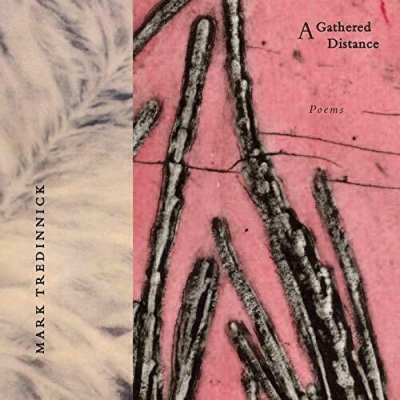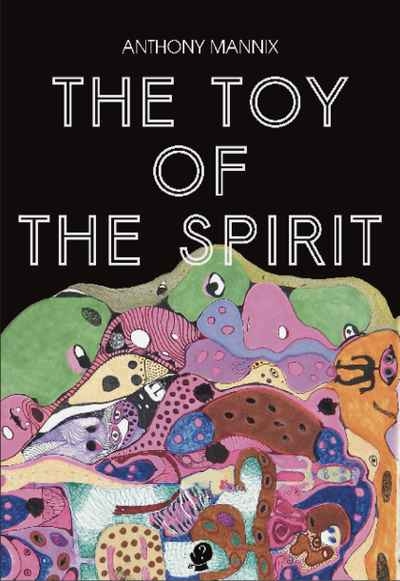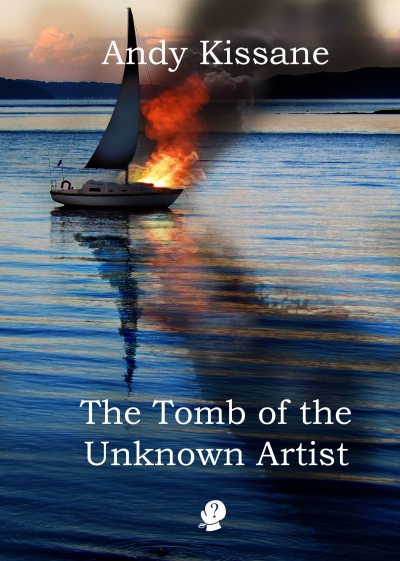Puncher & Wattmann
Toby Davidson’s first collection, Beast Language, was published nine years ago. That feels surprising: its freshness then makes it feel more recent now. Much of the movement in that book is present in his new collection, Four Oceans (Puncher & Wattmann, $25 pb, 93 pp), literally so, as we begin with a long sequence aboard the Indian Pacific from Perth to Sydney. It’s his younger self again, leaving home for the ‘eastern states’, but with an esprit de l’escalier twist, as that younger self gets to see and describe everything with the eye and language of the older, freer, more assured Davidson.
... (read more)Oliver Driscoll’s note on his first book I Don’t Know How That Happened (Recent Work Press, $19.95 pb, 74 pp) praises the inclusive flatness of David Hockney’s still life paintings, and it is to this inclusiveness that his poems and prose pieces aspire. Droll reported speech creates a comic atmosphere but also moves into Kafkaesque alienation where nothing seems to follow any pattern.
... (read more)Hear the way these poets use moonlight. According to a delicious detail in Jill Jones’s thirteenth full-length collection, Wild Curious Air (Recent Work Press, $19.95, 76 pp), ‘The moon’s light takes just over a second to reach our faces.’ In the context of meaning, note the length of the sound in the word ‘faces’. Jones affectingly contrasts this second with the light that left a star, centuries ago: ‘Always a past touches us, as this hot January forgets us.’
... (read more)In 1795, Friedrich Schiller wrote: ‘So long as we were mere children of nature, we were both happy and perfect; we have become free, and have lost both.’ For Schiller, it was the poet’s task to ‘lead mankind … onward’ to a reunification with nature, and thereby with the self. Central to Romantic thought, reimaginings like Schiller’s of Christian allegory, in which (European) humans’ division from a utopian natural world suggests the biblical fall, strike a chord in our own time of unfolding environmental catastrophe. Against such an unfolding, three new Australian books of poetry explore the contemporary relationship of subject to place.
... (read more)Mount Parnassus remains a proscribed destination for the moment, but Aidan Coleman’s Mount Sumptuous (Wakefield Press, $22.95 pb, 56 pp) provides an attractive local alternative. Following on from the poems of love and recovery in Asymmetry (2012), this collection marks the poet’s reawakened appetite for the sublimities and subterfuges of suburban Australia, from cricket pitches ‘lit like billiard tables’ and Blue Light Discos to the flammable wares of Best & Less and the implacable red brick of ‘all-meat / towns’. As these poems and their pseudo-pedagogical endnotes show, Coleman is a keen philologist of the language of commerce. The title’s ‘sumptuous’ (from the Latin sumptus for ‘expense’) keys us in to the vital ambivalence of a poetry, which on the one hand honours the rituals of everyday consumption (‘lounging / book in hand, Tim Tams / … tea a given’), and on the other speaks to the exploitative logic of consumer capitalism (‘Take the juiceless fruits / of day labour and a white / goods salesman’s leaden chicanery’).
... (read more)A Gathered Distance by Mark Tredinnick & The Mirror Hurlers by Ross Gillett
Luke Beesley reviews three new poetry collections by MTC Cronin, Jordie Albiston, and Michael Farrell
If I were to make gauche generalisations about the poetics of MTC Cronin, Jordie Albiston, and Michael Farrell, I might respectively write conceptual, technical, and experimental. But these established poets – each in their fifties, highly regarded – display fluency with all these descriptors, especially in their latest books.
... (read more)



